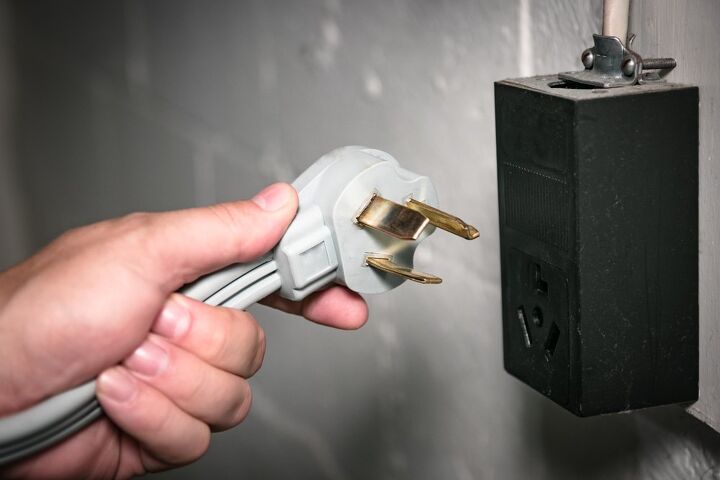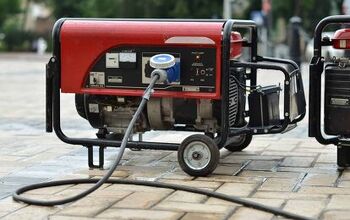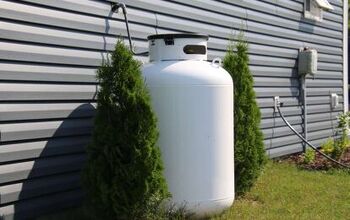What Wire Size For 30 Amp 240 Volt Circuit?

Wiring your home is a tricky business. There are all sorts of factors to take into account when you start planning an electrical project that involves re-wiring. There are the safety considerations, the locations and the appliances themselves. You even need to take special care when choosing all your electrical wire to make sure it can withstand the electrical demands. So when you are choosing the wire for a 30 amp 240 volt circuit, what gauge should you select?
A 30 amp 240 volt circuit requires a minimum of a 10-gauge wire. If you purchase copper wire, using a minimum of a 10-gauge wire is sufficient. When using aluminum wire, however, use a minimum of 8-gauge wire, as copper is a stronger conductor than aluminum. Be sure to consult your local electrical codes and contact a professional if you have any questions.
Before you select your electrical wire, you need to understand wire sizes, and how they are reflected in gauge numbers. Once you understand the gauge sizes, and different types of metals used to make electrical wire and how well they work, you can understand the right gauge size for a 30 amp 240v circuit.
Understanding Gauge Numbers For Electrical Wires
When you prepare to select the wiring for your home, you need to select the correct gauge. Before you do anything, it is important to know how gauge numbers work. The gauge refers to the physical size of the wire itself. But unlike most measurements, when it comes to gauges, the larger the gauge number, the smaller the wire. The thicker the wire, the smaller the gauge. This means, the more power you are dealing with (the more “amps” and “volts”) the smaller your gauge will become.
Typical Size Wires and their Amperage
Later in this article, you will learn about some factors you should consider before selecting the proper gauge wire for your home electrical project. At the end of the day, you need to pick a wire that has a high enough gauge to match the breaker and its capacity. In order to get a better understanding of how wire gauge and the electrical flow (amps) correspond to each other.
15 amps typically requires a 14 gauge wire.
20 amp typically requires a 12 gauge wire.
30 amp typically requires a 10 gauge wire.
40 amp typically requires an 8 gauge wire.
Why Selecting The Right Wire For your Circuit Is So Important
There are certain purchases you can make without much thought. Electrical wire, however, is not one of those “on a whim” purchases. Selecting the correct wire gauge for your 30 amp 240 volt circuit is fundamental to the success and safety of your home’s electrical system. Below are several reasons why you need to be very careful when selecting the right wire.
Function
First and foremost, selecting the correct wire allows your electricity to function properly. Having the wrong wires connected to your circuit can make it impossible for you to run the devices you need to on the circuit in question. Proper wires connected to the right circuits mean your devices will run correctly.
Safety
Perhaps most importantly, bad wiring can lead to some major safety problems. Many houses and buildings have caught on wire due to faulty wiring. The wrong wire can lead to all sorts of problems, and some of these problems can involve sparks inside your walls. That combination is never a safe one.
Electrical Code
There are specific codes you must adhere to when it comes to installing new electrical in your home. This includes your wire selection, and how that wire is installed. If you do not adhere to the proper wire size, your home will be subject to a code violation.
Be sure you research and know the codes in your specific location before performing any electrical work. Electricity that is not up to code is subject to all sorts of issues, including fines, to difficulty selling your home to difficulty collecting on electrical or fire-related insurance claims.
Copper Wire vs. Aluminum Wire For Your 30 amp 24-Volt Circuit
When you select your electrical wire, there is more to consider in addition to the proper gauge number. You also need to think about the material the wire is made of. You can purchase copper wire or aluminum wire. While both work, it is important to know the differences between the two. In fact, the type of metal you choose will likely affect the gauge size you need.
Copper Wire
Copper wire is normally viewed as the “superior” choice between the two metals. This metal is a stronger conductor of electricity, which makes it a natural choice for electrical wire. This metal, however, has gotten more and more expensive over time. This gave rise to the popularity of aluminum wire in homes.
Aluminum Wire
Aluminum wire is also popular, but it is slightly less effective as a conductor. This means when you use aluminum wire, you need to purchase aluminum wire up one gauge (meaning down in number) than if you used copper. This means that if you use aluminum wire for your 30 amp 240v circuit you should purchase a minimum of an 8-gauge wire to be safe. This is due to the fact that aluminum is not as strong of a conductor as copper is.
Using Both Copper and Aluminum Wire
While you can use both types of wires in the home, it is not usually recommended. Not only is it confusing, but it can also be detrimental to your wiring system. It can also potentially be dangerous.
Using copper and aluminum means you are using two dissimilar types of metals. When these two metals touch and interact with each other, they oxidize over time. These wires will expand and contract based on hot and cold temperatures, and they can bend, cause friction, and potentially spark and cause a fire. This is why it is best to avoid the headache of making sure no dissimilar wires touch. Selecting one type of metal is often best. Copper is a bit more expensive, but it is a stronger metal and a better conductor.
Consider Hiring A Professional
If you are unfamiliar with electrical wire sizes, then rewiring your home is not the best DIY project for you to learn on. You should call an electrical professional any time you have a little bit of uncertainty when it comes to electrical work.
An electrician will make sure the proper wire is chosen for all your circuits and electrical needs. Additionally, certified electricians are well-versed in your local electrical codes. This means that while you may pay significantly more than if you did the work yourself, you can potentially pass some of this cost on to the next owner. Quality electrical work lasts a very long time, so it likely only needs to be done once if done correctly.
Haphazard electrical work is quite common when done by amateurs and can lead to all sorts of very expensive problems. Unlike other DIY projects like painting, or even some basic carpentry, electrical work has a major impact on the safety of your home. Working with electrical wires is also rather dangerous.
Final Considerations On Selecting Wire For A 30 amp 240V Circuit
You should always use a minimum of a 10-gauge wire for a 30 amp 240 volt circuit. This, however, is a minimum when you are using copper wire. If you use aluminum electrical wire, however, you should go up one gauge to an 8-gauge wire. This is due to the fact that aluminum is not as powerful of a conductor as copper is.
If you are uncertain about electrical codes, or wire selection, do not hesitate to contact a professional. While electricians are expensive, they will get the job done properly. Good wiring means a safe electrical system and a secure home, which is worth its weight in gold, or in this case, copper.

Tom Gaffey is an expert writer who currently resides in Washington D.C. Tom has a passion for real estate and home improvement writing, as well as travel and lifestyle writing. He lived the last twelve years in Hawaii where he worked closely with luxury resorts and event planners, mastering his knowledge of aesthetics and luxury products. This is where he found his passion for home improvement and a keen interest in DIY projects. Currently, Tom resides in Washington D.C, and also working on his debut fiction novel.
More by Tom Gaffey



























